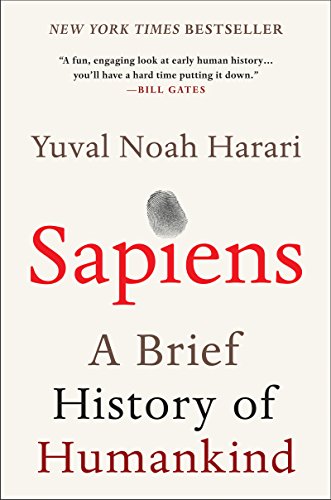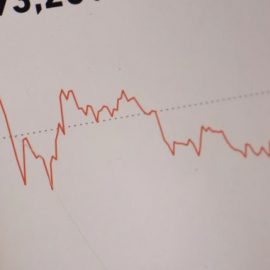

This article is an excerpt from the Shortform summary of "Sapiens: A Brief History of Humankind" by Yuval Noah Harari. Shortform has the world's best summaries of books you should be reading.
Like this article? Sign up for a free trial here .
What does capitalism theory say about how the economy should be governed? What kind of ethics has capitalism introduced into society?
Capitalism is a system of private ownership based on the ethics of individual wealth. It gets its name from the word “capital”: money and resources that are invested in the production of a product or service.
We’ll cover the basics of capitalism theory and look at the new set of ethics capitalism introduced into society.
The New Ethics of Capitalism Theory
Let’s look at the foundation of capitalism theory. Before the notion of progress, people believed that being wealthy was sinful. This was a Christian idea based on the assumption that there was a fixed amount of wealth and resources to be had.
Now, people started to see their wealth as independent of others’ poverty. Further, not only was individual wealth not a sin, it was a societal good. Leading this new morality of money was Adam Smith. In The Wealth of Nations, Smith contended that an employer’s profits benefit society because the employer reinvests his profits in hiring more employees. By hiring more employees, the employer more widely spreads the business’s profits. In a sense, greed is good for everyone.
People started thinking of money-making as a public good. If you’re poor, then you can’t buy your neighbor’s goods, which hurts both of you. If your neighbor is poor, then she can’t buy your goods, which, again, hurts both of you. If just one of you is poor, you both lose. Of course, if both of you are rich, you both win.
Capitalism theory also brought about an ethic about how profits should be used. In the past, rulers and the wealthy had spent their wealth on tournaments, palaces, banquets, wars, and charities. Now, they were expected to reinvest their profits in production, which would increase profits, which could then be reinvested, continuing the cycle.
This reinvested money is called capital. Capital is the term for money and resources that are invested in the production of a product or service. Money buried in a treasure chest in the sand isn’t capital—it’s not put to work. But income invested in the stock market is capital—it’s being put to work. This is how the “religion” of capitalism gets its name.
Capitalism theory brought with it an additional code of ethics, building on the ethics of individual wealth. It declared that economic growth was the “supreme good” because you couldn’t have a just and free society without it. For instance, a capitalist might say that because a stable government depends on a thriving middle class, you can bring political freedom to Zimbabwe by teaching tribesmen about thrift and free enterprise.
Trust in the Future and the Invention of Credit
The modern agreement to represent future (and therefore imaginary) resources with money today is called credit. Credit is founded on the assumption that the future will have more abundant resources than the present. This is a key feature of capitalism theory.
Loans existed in the pre-modern era, but not commonly for strangers and not on a large scale. This was because people didn’t trust the future to produce more resources than the present. They believed that the economy couldn’t grow because resources were limited. Because resources were limited, and money could only represent things that actually existed, wealth was limited. In other words, there was only so much money to go around. If one baker was prospering, that meant the baker down the street had to be starving. A set amount of wealth meant that if you had it, it was because you were taking it away from someone else.
With this mindset, extending credit was risky. It was not at all a sure thing that the person you lent money to would prosper and be able to pay you back.
The Idea of Progress
We don’t often realize how essential the idea of progress is to capitalism theory.
The Scientific Revolution brought the idea of progress. If we admit our ignorance, we can take steps to eradicate our ignorance, and this leads to progress. This mindset extended to the economy as well. For instance, new trade routes opened and flourished without damaging the business of the old trade routes. The bakery specializing in cakes didn’t ruin the neighboring bakery specializing in bread.
Trust in the future allowed for the widespread use of credit. Credit allowed the economy to grow. This growth gave people hope in the future and they extended more credit, continuing the cycle of growth.
When Capitalism Theory Fails
Capitalists have reason to champion the system. It’s spurred economic, scientific, and imperial growth the way few other imagined realities have. But what happens in situations when it fails to work? Let’s look at two critiques of capitalism theory.
1. The Free-Market Doctrine Makes Us Vulnerable
Most capitalists believe that the government shouldn’t be involved in monitoring or controlling the market (although it’s fine for the market to wield control over the government). This is the idea of a free-market.
But capitalism theory relies on trust. This trust is eroded when people cheat and steal, and a free market offers no protection against these dangers. It’s the job of governments to protect people from these dangers and enforce the law. The government has to be involved in the market to keep us safe.
2. Reinvesting Profits Doesn’t Always Benefit Employees
Capitalism theory is built on Adam Smith’s assumption that employers will reinvest their profits and hire more employees. There are two primary reasons to doubt this assumption: monopolies and the slave trade.
Monopolies
Capitalists say that if an employer doesn’t reinvest his or her profits and instead makes a profit by lowering wages and increasing work hours, the best employees will leave and find a new employer. This is the safeguard of capitalism, they say. But in a monopoly, it gets harder for an employee to find a job somewhere else. This allows employees to take advantage of workers, and workers can do little about it.
The Slave Trade
Historically, employers have also removed payment altogether. This was how the European slave trade started.
Increasing worker wages meant increasing the cost of sugar, which would have made it too expensive for most Europeans. So the plantation owners got rid of payment altogether and exchanged contract laborers for slaves. This made sugar cheaper, and it also made it a profitable business to have a share in. In the 18th century, investments in the slave trade could yield 6% per year.
Taking monopolies, slavery, and other types of exploitation into account, there’s no way for free-market capitalism to make sure that wealth is distributed fairly or earned justly. Capitalism theory doesn’t ensure equality.
Consumerism and Capitalism Theory
Consumerism seems to conflict with the capitalist mentality of wasting nothing and reinvesting profits. While the two codes of ethics do conflict, they can inhabit the same space as the “capitalist-consumer ethic,” because this combined ethic has different rules for different people. The capitalist-consumer ethic tells the rich to invest and the poor to buy. The rich believe in frugality and investing, and the poor believe in buying and indulging. The rich manage their investments while the poor buy televisions and new phones they don’t need. The spending of the poor supports the wealth accumulation of the rich. The capitalist-consumer ethic allows the rich to keep getting richer and the poor to keep getting poorer.
———End of Preview———

Like what you just read? Read the rest of the world's best summary of "Sapiens" at Shortform . Learn the book's critical concepts in 20 minutes or less .
Here's what you'll find in our full Sapiens summary :
- How Sapiens outlived and outlasted the 8+ other human-like species on Earth
- The 3 critical revolutions in human existence that led to our domination of the planet
- How much of what powers our world today is really just a shared mass delusion
- What the future of humanity might look like






